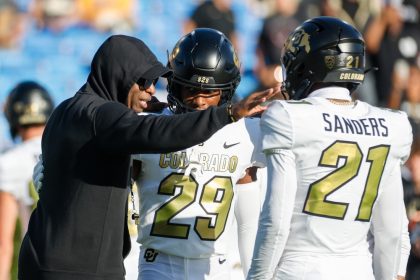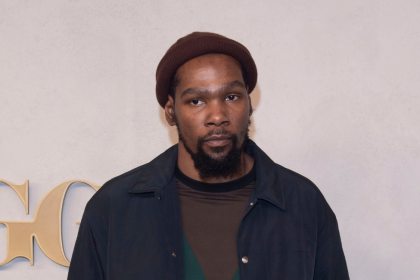Recent flag-planting celebrations during college football’s rivalry week ignited controversy, with Michigan’s midfield display at Ohio State leading to a brawl requiring law enforcement intervention and pepper spray deployment.
Tampa Bay Buccaneers quarterback Baker Mayfield, known for his own flag-planting history at Oklahoma, defended the tradition. “College football is meant to have rivalries. That’s like the Big 12 banning the ‘horns down’ signal. Just let the boys play,” he stated.
The Michigan-Ohio State incident resulted in a $100,000 fine for both schools from the Big Ten Conference. Similar celebrations occurred during Florida-Florida State and NC State-North Carolina games, though with less dramatic consequences.
Texas coach Steve Sarkisian actively prevented his players from celebrating on Texas A&M’s logo, demonstrating growing awareness of potential fallout from such displays. His intervention represents a shift toward preemptive management of rivalry celebrations.
The incidents highlight tension between traditional rivalry expressions and sportsmanship concerns. While flag planting remains symbolic of competitive spirit, recent events question appropriate celebration boundaries.
As rivalry traditions evolve, coaches and administrators face challenges balancing team pride with respect for opponents. The debate continues over preserving college football’s passionate rivalries while maintaining order.
The week’s events demonstrate how quickly celebratory moments can escalate into broader controversies affecting multiple programs and conferences. Law enforcement involvement in the Michigan-Ohio State aftermath particularly emphasizes security concerns.
Conference officials now grapple with establishing clearer guidelines for post-game celebrations. The significant fines imposed suggest increasing scrutiny of traditional rivalry practices.
The controversy raises questions about evolving standards in college football culture, where social media amplifies traditional rivalry moments into national discussions about sportsmanship.
These incidents may influence future rivalry week protocols, as programs balance maintaining tradition with preventing confrontations that overshadow athletic achievement.
The role of social media in amplifying these moments adds complexity to managing rivalry traditions. Videos of celebrations and confrontations spread rapidly, influencing public perception and institutional responses.
Historical rivalry traditions face modern scrutiny as colleges weigh potential liability and safety concerns against preserving passionate fan experiences. Security protocols may evolve to address celebration-related risks.
Athletic departments must now consider additional staffing and preparation for rivalry games, anticipating potential post-game scenarios that could require intervention.
The debate extends beyond individual schools to conference-wide policies, as administrators consider uniform approaches to managing rivalry celebrations while preserving traditional aspects of college football culture.













